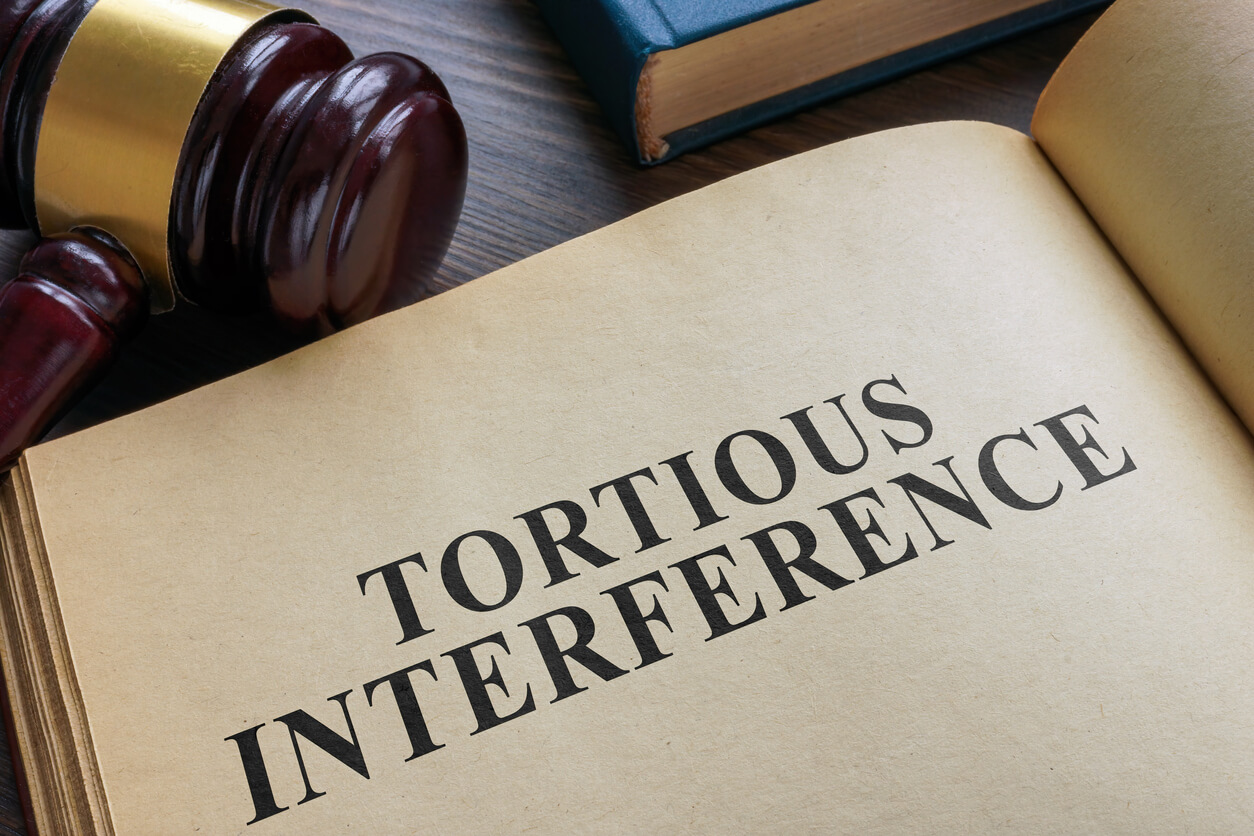In addition to breach of contract remedies, the law recognizes an action in tort for wrongful interference with contractual rights and relations. This means that, if someone causes economic harm to you or your business by unlawfully interfering with an existing contract or even a prospective business relationship, you may sue for damages under a claim for tortious interference. The experienced New York commercial litigation attorneys at Levy Goldenberg LLP have prosecuted and defended complex tortious interference cases.
The basic principles of liability for tortious interference
The general theory underlying the tort of wrongful interference with a contract is that the law tries to draw a line beyond which no one is permitted to cross in intentionally interfering with the business affairs of others. This encompasses the broader tort of interference with economic relations. Interference with a contract is considered to be wrongful because it violates the rights of the contracting parties to:
- Fulfill the contract,
- Expect that the other side will meet its contractual obligations,
- Reap the benefits and profits resulting from the contract, and
- Compel the other party’s performance.
Thus, a contract not only confers certain rights on the parties thereto and binds them to the agreement, but also imposes on all other persons and third parties the duty to respect the agreement as a valid contractual obligation and to refrain from wrongfully interfering. However, the law must balance these basic principles with the well-recognized notion in New York that there must competition in a functioning economy. As such, not all forms of interference are actionable.
The elements of tortious interference with an existing contract
In order to establish liability for tortious interference with an existing contract, a plaintiff is required to prove:
- That he, she, or it had an enforceable contract with a third party
- That the defendant knew about the contract
- That the defendant intentionally induced the third party to breach the contract
- That the third party did, in fact, breach the contract
- That the third party would not have breached the contract if it had not been for the defendant’s conduct
- That the plaintiff sustained damages as a result of the third party’s breach
Issues relating to prospective economic opportunities
Following along the lines of the law that developed in connection with tortious interference with a contract, New York courts have recognized the concept that if a plaintiff is protected by law in the enjoyment of actually acquired property or contract rights, the law should likewise protect a plaintiff’s efforts to acquire property or contracts. In cases that do not involve an existing contract, the cause of action is called tortious interference with prospective economic relations. In order to prevail on this type of claim, a plaintiff must establish:
- That he, she, or it had the opportunity to enter into a business relationship with another
- That the defendant knew about the prospective business relationship
- That the defendant intentionally interfered with that prospective business relationship
- Through the use of wrongful means or for the sole purpose of harming the plaintiff
- That the plaintiff and the third party would have entered into the business relationship
- That the plaintiff sustained damages as a result of the defendant’s wrongful interference
“Wrongful Means”
The element of “wrongful means” is often heavily contested. “Wrongful means” has been defined as conduct amounting to a crime or an independent tort, and the conduct must be directed not at the plaintiff but at the third party with which the plaintiff has or seeks to have a business relationship. There is generally no cause of action when a defendant prevents a plaintiff from obtaining a pecuniary advantage merely through acts of negligence. Rather, these types of cases may involve allegations of:
- Violent acts
- Threats of violence
- Fraud
- Deception
- Misrepresentation
- Economic coercion or blackmail
If the defendant’s actions were motivated by normal economic self-interest, then the plaintiff will not be able to make a prima facie case. A competitor’s self-interest may be a defense to a cause of action for tortious interference unless the plaintiff can prove malice or criminality. For example, if the accused meddler had some financial or legal stake in the outcome of the impending transaction or an existing contract held by a competitor, the interference likely is not actionable. However, if the defendant was motivated for other reasons, to punish the competitor by making false claims about the competitor for example, then the self-interest defense will not be available.
Causation
A tortious interference with a prospective contract or economic opportunity requires non-speculative proof of damages resulting from the improper interference. The plaintiff must prove that, but for the interference, the plaintiff would have obtained the prospective contract or business relationship. This means that if the plaintiff cannot show a high degree of probability that a contract or business relationship would have been finalized but for the defendant’s wrongful interference, then the claim will likely fail. Some courts have referred to this element as “proximate cause”.
Contact Our Attorneys Today
Levy Goldenberg LLP, New York’s leading commercial litigation firm, has an impressive track record representing businesses and individuals in tortious interference cases. If you or your business lost a contract or was prevented from entering into a business relationship because of the tortious interference of another, such as a competitor, or if you have been accused of wrongfully meddling with someone else’s contract or prospective economic relationship, do not delay. Contact us today to discuss your case.
